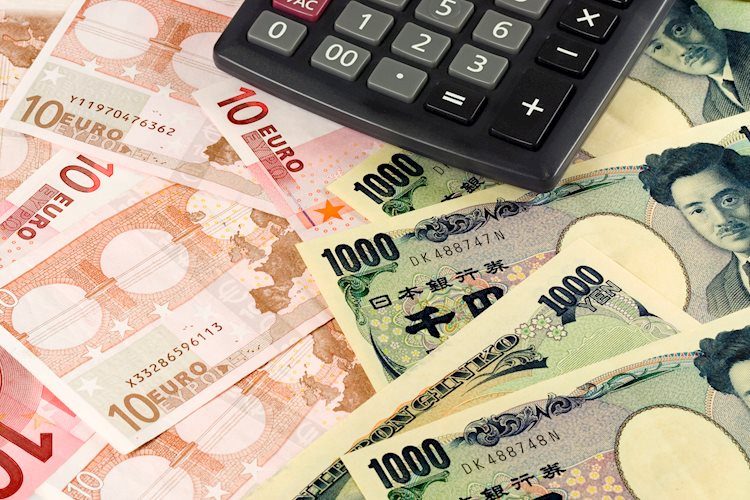The EUR/JPY cross experienced a downward trend for the second day in a row, dropping to a one-month low of 158.20. This drop can be attributed to a softer risk tone in the market, as well as increasing bets on a rate hike by the Bank of Japan (BoJ), both factors which have boosted the Japanese Yen (JPY) and placed pressure on the cross. Additionally, expectations of a dovish stance by the European Central Bank (ECB) have contributed to the decline and suggest potential for further losses in the future.
Ahead of the release of crucial US consumer inflation figures, investors are turning cautious, leading to a weaker tone in equity markets and a move towards safe-haven assets like the JPY. This cautious sentiment is further reinforced by hawkish comments from BoJ board member Junko Nagakawa, who highlighted the potential for adjustments in monetary easing depending on economic conditions. In contrast, the ECB is expected to lower rates at its upcoming meeting, further weighing on the EUR/JPY cross.
Despite a decline in business confidence among Japanese manufacturers and non-manufacturers, the JPY remains strong. This indicates a lack of support for the EUR/JPY cross, pointing towards a bearish bias in the short term. The recent data from a Reuters monthly poll shows a significant drop in business confidence, yet this has not shifted market sentiment significantly.
In terms of currency performance today, the Japanese Yen emerged as the strongest against the New Zealand Dollar. The percentage changes for the JPY against major currencies like the US Dollar, Euro, and British Pound show varying trends. The heat map provided illustrates these changes, with the percentage change displayed in each box representing the base currency selected from the left column and the quote currency from the top row.
In conclusion, the EUR/JPY cross continues to face downward pressure due to a combination of factors including a cautious market sentiment, hawkish BoJ comments, and dovish ECB expectations. The recent drop to a one-month low signals a bearish bias in the short term, with potential for further losses. While Japanese business confidence has declined, the strength of the JPY remains resilient, indicating a lack of support for the cross. Traders will closely monitor key economic data releases and central bank meetings to gauge future movements in the EUR/JPY pair.


























